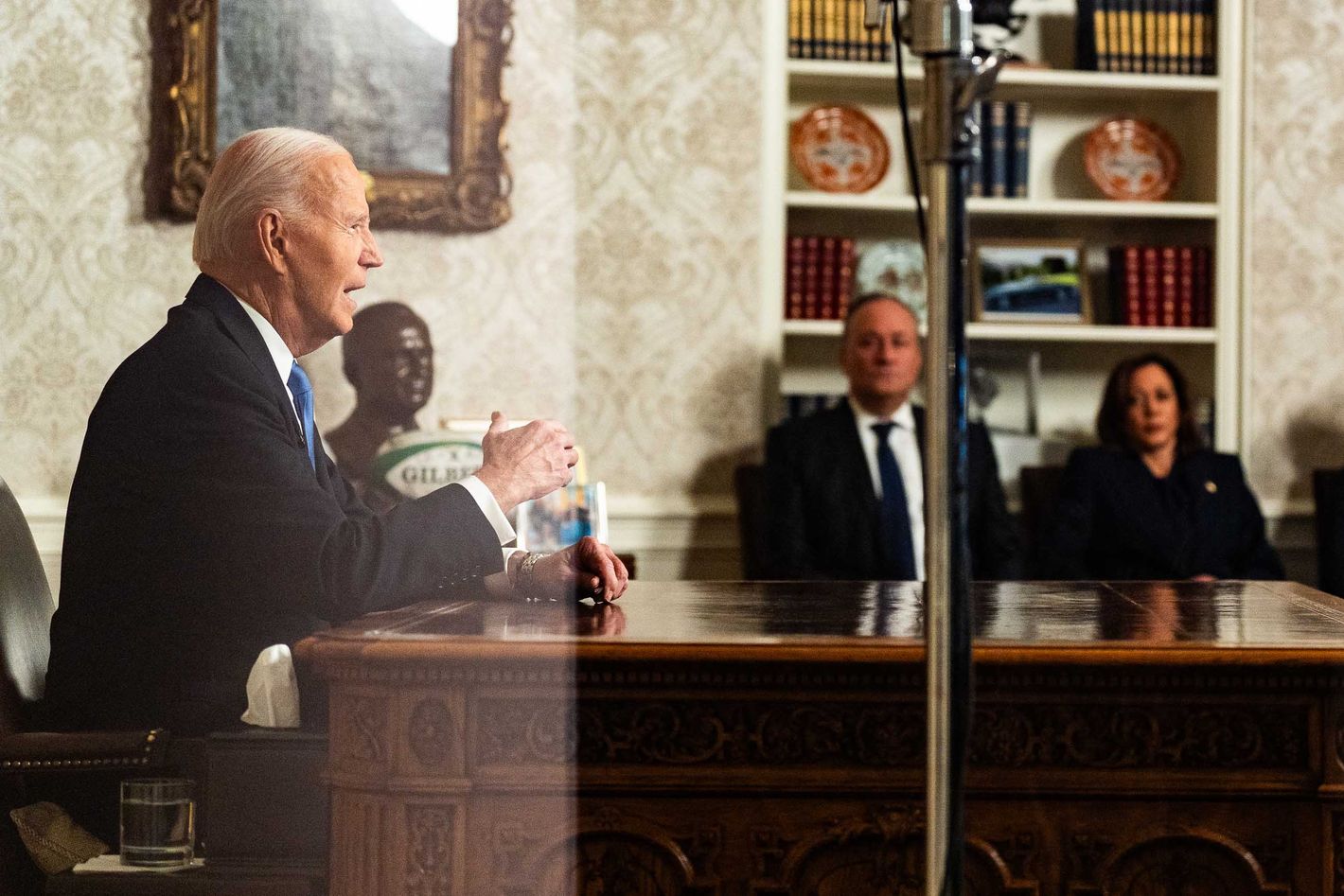Photo: Demetrius Freeman/The Washington Post/Getty Images
Presidential farewell addresses aren’t typically the occasion for regrets, and accordingly, Joe Biden’s Oval Office speech this past week was a more traditional mix of boasts over accomplishments and warnings about the crowd moving into the White House on Monday. But reports persist that the 46th president remains convinced he should have stayed in the 2024 presidential contest, because he would have won. (This has reportedly caused outgoing Vice-President Kamala Harris “deep sadness.”) It’s rather jarring to realize that Biden deeply regrets the most important decision of his presidency, one that many Democrats and objective observers alike believe was only mistaken because it came too late.
So as we anticipate what could be the immensely consequential presidency of Donald Trump, we should close the books on this particular question. There’s never any way to prove counterfactuals, but we do have some pretty solid data rebutting Biden’s apparent belief that his self-defenestration saved Trump from defeat.
As the Washington Post’s Philip Bump notes, a YouGov survey taken the weekend before the election showed a huge difference between the Harris-Trump contest reaching its end and a Biden-Trump race that might have been. Harris’s relative performance was ten points better than Biden’s. This is not a small gap; it suggests that if Biden had been the Democratic nominee, Trump would have truly won a landslide instead of imagining one, as he did after the actual election.
You don’t have to rely on this one poll, of course. When he dropped out, Biden trailed Trump by 3.2 percent in the FiveThirtyEight polling averages and had trailed him for a month. Almost immediately, Harris led Trump in the same averages and never trailed. Everything we know about Trump’s final, crucial surge of support indicates a negative referendum on Joe Biden’s record in office and a positive reassessment of what Trump might offer, rather than anything Kamala Harris was or was not doing. It’s quite clear in retrospect that the brief “refresh” Harris provided in Democratic prospects was eventually overcome by the burden of the Biden administration’s many problems. The hypothetical Biden campaign that stayed in the race until the bitter end would have not only borne the same burden of incumbency, but the additional handicap after the disastrous June 21 debate of constant scrutiny of the Democratic nominee for signs of cognitive decline or disability. It was a debacle in the making.
The extreme improbability of a Biden comeback, had he tried to mount one, is even more decisively reinforced by measurements of his popularity as the general election approached. His job-approval rating had been higher than Harris’s throughout their administration — until she replaced him on the 2024 ticket. In August, her approval rating eclipsed his, and by Election Day (again, per FiveThirtyEight), Harris was at 44.3 percent, while Biden was at 38.5 percent. In terms of personal favorability, Bump shows how poorly Biden was doing by the time voters voted:
Once Biden stepped aside and Harris became the nominee, her favorability surged.
Between that point and Election Day, Harris’s net favorability was higher across demographic groups. Overall, her net favorability was an average of nine points higher than Biden’s. It was an average of 16 points higher with Hispanics, 11 points with women, eight points with men and even 11 points higher with Americans who didn’t attend college — a group to which Biden’s blue-collar bona fides were supposed to hold particular appeal.
Needless to say, Democrats lost the White House in no small part because of their weaknesses among several of these demographic categories where Biden’s standing was particularly bad. You didn’t have to be riveted to campaign coverage to grasp that every single thing that boosted the Democratic Party’s odds of beating Trump — the radical turnaround in fundraising, the huge boost in volunteers, the successful national convention, and, indeed, the widespread expectation that Harris had a good chance to win — flowed from Biden’s courageous but correct decision to withdraw his candidacy and designate her as his successor.
Of all the regrets Joe Biden may take with him as he leaves the White House for good, he should relieve himself of a bad conscience for accepting the consensus of Democrats that he “step aside” last summer. He did the right thing. He wouldn’t have won. He may yet derive the grim satisfaction of seeing the American people conclude that they, not Joe Biden, made the crucial mistake of 2024.

